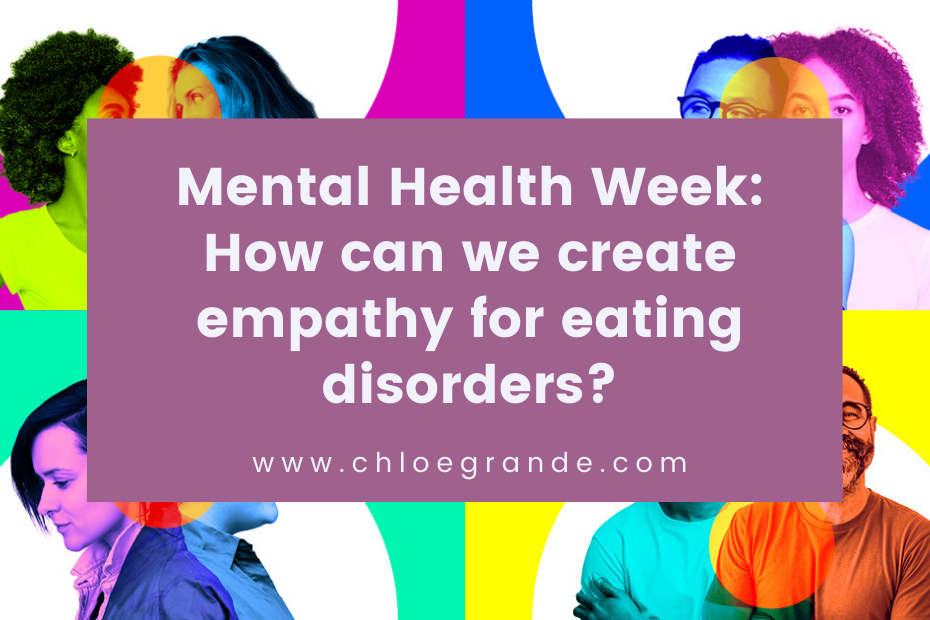Of all the awareness days and events around mental health, October’s Mental Illness Awareness Week (MIAW) seems to slip through the cracks. Yes, there’s the notorious #BellLetsTalk day in January, then there’s Mental Health Awareness Month in the spring, but MIAW gets sandwiched between the busyness of back-to-school and Thanksgiving festivities, taking place over the first week of October.
I wonder: Is some of the weariness around Mental Illness Awareness Week because of its name? There still seems to be an unexplainable ick factor associated with “mental illness.” Mental health, on the other hand, seems perfectly acceptable to talk about (“we all have it!”).
Mental health means self-care and cute therapy dogs, while mental illness means medications and a deeply ingrained stigma. Yet, this year’s MIAW content from the Canadian Alliance on Mental Illness and Mental Health show that 1 in 3 Canadians will be affected by mental illness in their lifetime. That stat should come as no surprise.

My personal connection to Mental Illness Awareness Week
Way back in 2014, when I worked as a Lifestyle Editor for the Queen’s University student newspaper, an idea hatched to build a week-long feature project around MIAW. Each day, we would feature different stories of lived mental illness from students, ranging from eating disorders to anxiety to OCD. The idea was to continue the project year-round, highlighting the importance of normalizing conversations on mental illness.
To accompany these powerful first-person stories, we needed an eye-catching graphic for the print edition of the newspaper. I sent off messages to students I knew, asking them if they were indirectly or directly impacted by mental illness, and if so, whether I could use a photo of them for a collage.
You’d be surprised at the number of people who said no, they were not in any way impacted by mental illness (really?!). Yet, we persisted and found enough faces to fit the graphic — I loved it so much that I featured it in one of my grad photos.

Writing the way
As the Lifestyle Editor, I didn’t often write pieces myself, especially not about the struggles I faced as a university student. This project was different. It came from such a personal place of lived experience that I felt compelled to pen an article.
Have you heard about the flow state? It’s described as a “trance-like altered state of total absorption and effortless concentration” — where you lose track of time and any other preoccupations on your mind. Pure, uninterrupted bliss.
Writing an article for MIAW was my ultimate flow state. I hammered it out in record timing late one weekday night, hitting send to my editor around 3am.
Years later, when asked about my proudest achievement in a job interview, I brought up the MIAW project and its impact on starting difficult conversations. It still brings me pride to this day. Here’s a snippet from the piece that I wanted to share.
From the archives

An except from a 2014 Queen’s Journal article.
A few months ago, the acronym MIAW meant nothing to me. To most people, I’m sure it’s still just as meaningless.
But Mental Illness Awareness Week (MIAW) shouldn’t be just another acronym. It shouldn’t be another insignificant week in October. What it should be is a reminder that mental illness is everywhere, touching those who suffer and even those who are affected indirectly.
What’s vital is that we carry this conversation of mental illness well beyond the scope of a week. Awareness is just the beginning.
We’ve come a long way here at Queen’s. The open discussions surrounding mental health are ongoing, whether through student groups, health services or administration. I’m consistently pleased with the growing attention this issue receives.
However, as someone who suffers from mental illness — I was diagnosed with anorexia nervosa at 15 — what I found lacking on campus was a personal connection. Even after disclosing my own experience in a Journal Postscript story this February, I struggled to find others who were willing to talk. That’s not to say these voices weren’t existing; they just didn’t seem to be openly available as I imagined them to be.
I knew others were suffering, as the mental illness statistics are staggeringly obvious, yet it seemed hard to find these individuals. MIAW was the opportune moment to fix this issue. The goal behind Lifestyle’s initiative is to bring forth the stories of fellow students in an accessible, embracing place to showcase the immense prevalence on campus.
There’s nothing more terrifying than exposing a perceived vulnerability, and that’s exactly what these individuals are doing. In my eyes, they’re the epitome of sheer strength, bravery and fearlessness. Although the spotlight is on their unique voices, I know they speak on behalf of a larger group of students who remain silenced by mental illness.
There’s a tendency to internalize mental illness. Feelings of shame and worthlessness overpower the need to seek support from others. Don’t let that happen.
If there’s one thing we can all learn, it’s that mental illness is a much-needed topic of conversation. It’s only stigmatized because we create that illusion of negativity. These individuals shared their own stories — and you can too.
Queen’s is bursting with opportunities to seek help, give advice and learn more about mental illness. But perhaps the greatest source of inspiration comes from our fellow peers. Mental illness has a face and it’s everywhere around us.

I mark Mental Illness Awareness Week on my calendar, year after year. No matter what else is going on, I try to make an effort to pay attention to this special week. Mental illness is different from mental health, and it’s a trickier, ickier and messier subject to tackle.
That doesn’t mean we shouldn’t address it, though. I wear my mental illness as a badge of honour, strength and resilience, and so should you.




So happy I stumbled upon your blog! Mental health is more than a hashtag or week out of the year. It is something that should be integrated into our daily lives.
Thank you for stopping by, Colleen! Always great to connect with others promoting eating disorder recovery and advocating for mental illness awareness all year long.
You’re so right that we need to carry the conversation beyond just one week! The more we are open about struggles and mental illness, the more the conversation becomes normalized! I love the work you’re doing toward that!
Skye, thank you for sharing your thoughts! The more of us to carry on the conversation about mental illness, the better. Love that you’re also contributing to the space with your own blog and social media. It truly takes a village 🙂